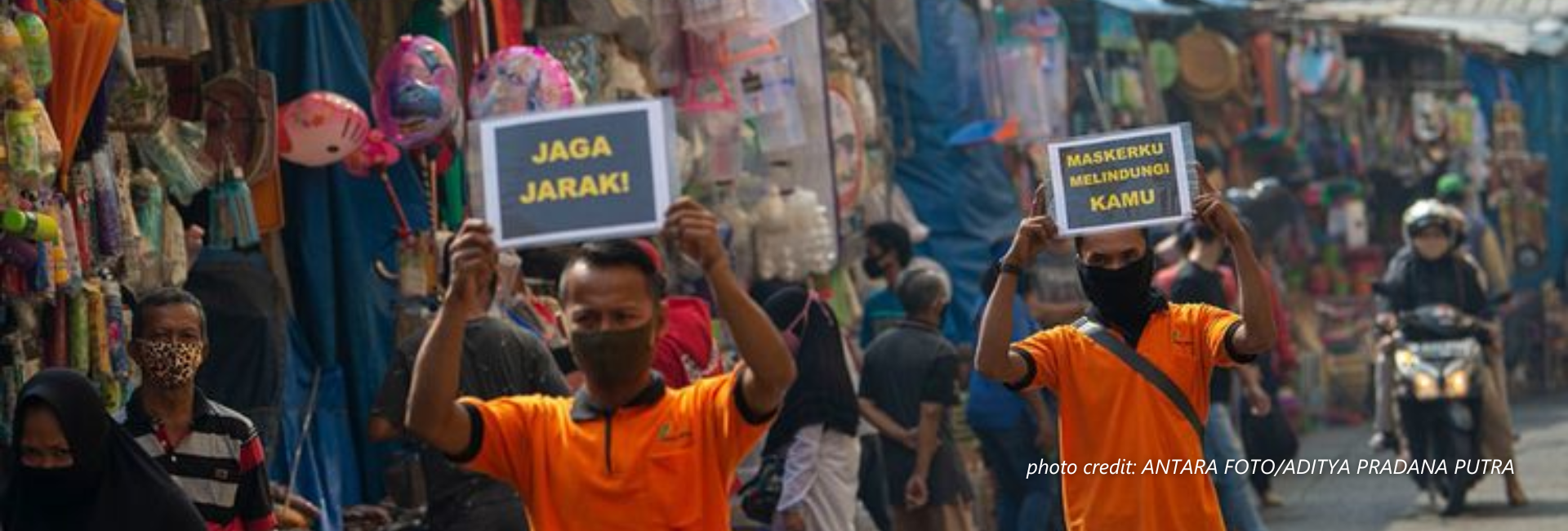The decline in socioeconomic state due to the COVID-19 pandemic has presented more challenges for the government to respond to the crisis. These challenges need to be addressed appropriately to ensure that they are pro-poor and equitable.
During the last first semester of 2020 , the government introduced various schemes to address the emerging issues. Nevertheless, these initiatives need to be critically reviewed so that the government are well-informed and receiving valuable inputs on the effectiveness of their programs to improve future programs.
SMERU, experienced in researching socioeconomic issues during the 1998 Asian Financial Crisis and 2008/2009 Global Financial Crisis, has offered to conduct studies related to the socioeconomic aspects of the COVID-19 pandemic in three areas: economics, social, and mother and child health. These studies, if informed accurately to the government, will benefit future pro-poor and inclusive policy-making processes.
SMERU then identifies key stakeholders at the national level, varying according to the specific studies undertaken. Furthermore, SMERU will also work closely with regional governments. Through Knowledge Sector Initiative’s previous funding and other arrangements, SMERU has been able to forge strong relationships with seven provincial governments that have worked with SMERU in the past. This long-standing engagement will benefit this initiative. The seven provinces are DKI Jakarta, West Java, East Java, South Sulawesi, Bali, West Nusa Tenggara (NTB), and East Nusa Tenggara (NTT).
E1. Digital Transformation of SMEs Induced by the COVID-19 Pandemic
This study is an enrichment of the previous study funded by the Knowledge Sector Initiative’s 2019–2020 Strategic Partnership Grant. SMERU is keen to further explore a policy study on developing an inclusive digital economy to provide research-based evidence on the policy discourse on SMEs, which is notably an emerging sector. This study will map the digital transformation phase of SMEs in Indonesia and how the COVID-19 pandemic becomes the trigger or barrier in accelerating the transformation .
E2. Impact of the COVID-19 Pandemic on Employment
SMERU will deepen the Y1 COVID-Employment and continue to roll out the discourse. This study aims to capture employment dynamics during the pandemic, the period of economic recovery, and the factors influencing both the dynamic and the recovery.
E3. Employment Protection during and after the COVID-19 Pandemic
This study complements E2 described above. The study will map the development of discourse and issues related to the need for employment benefits in Indonesia, which will form the basis for designing an effective worker safety-net program
E1. Digital Transformation of SMEs Induced by the COVID-19 Pandemic
For this study, we will collect data and carry out policy engagement activities from September 2020 to April 2021. We will employ secondary data analysis using Susenas and Sakernas data sets, complemented by primary (in person and remote) data collection to see the state of digital transformation of SMEs in Indonesia.
E2. Impact of the COVID-19 Pandemic on Employment
For this study, we will collect data and carry out policy engagement activities from September 2020 to August 2021. We will employ secondary data analysis four rounds throughout the study period (September 2020, December 2020, March 2021, and June 2021). The analyses are aimed at learning the impact of the pandemic on employment at the national level.
E3. Employment Protection during and after the COVID-19 Pandemic
For this study, we will collect data and carry out policy engagement activities from September 2020 to June 2021. We will employ literature review, remote primary data collection, focus group discussions, policy discussions, and in-depth interviews at the national level with key stakeholders including the Ministry of Labour, Coordinating Ministry of Economic Affairs, Bappenas, PMO Kartu Prakerja, BP Jamsostek, and the Fiscal Policy Agency of the Ministry of Finance. SMERU will provide sound recommendations on unemployment benefit policies.






